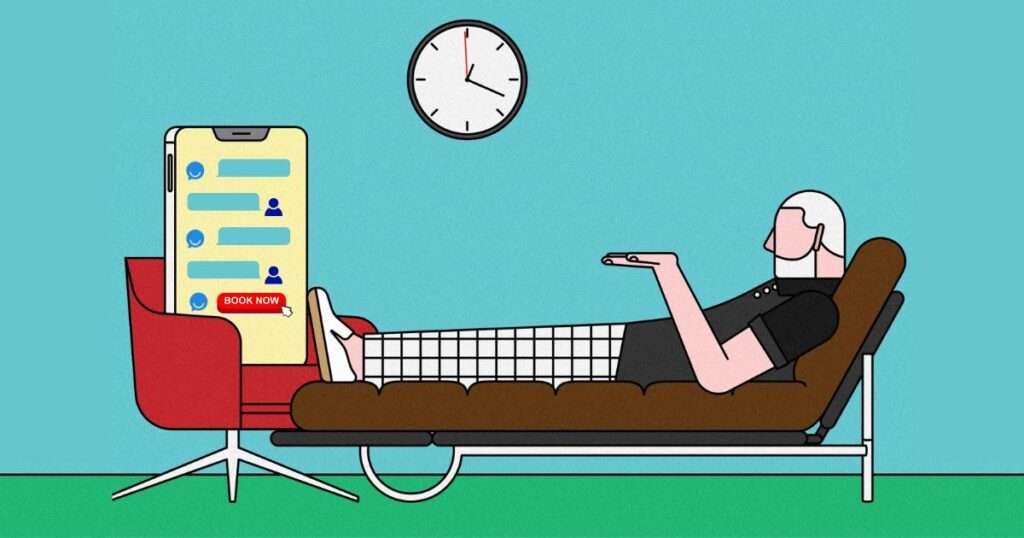New technology is reshaping emotional support. Explore sharing feelings and conversing with AI chatbots as if they were friends.
Let’s look at how chatbot help in therapy!

One such advancement is the integration of chatbots into therapy sessions. These AI-powered assistants are changing the way we approach mental health treatment, offering accessibility, personalization, and continuous support to individuals in need. In this comprehensive guide, we’ll explore the myriad ways in which chatbots are revolutionizing therapy and enhancing the well-being of countless individuals worldwide.
Accessibility and Convenience:
In traditional therapy, scheduling appointments and travelling to a therapist’s can be time-consuming, particularly for individuals with busy schedules or limited mobility. Chatbots address these challenges by providing round-the-clock support, allowing users to engage in therapy whenever and wherever they feel comfortable. Whether it’s a late-night crisis or a moment of distress during a busy workday, chatbots offer a non-judgmental space where individuals can seek support without hesitation.
Personalized Support:
One of the most significant advantages of chatbots is their ability to deliver personalized interventions based on user input and preferences. With the help of algorithms and natural language processing, chatbots can analyze user responses to provide empathetic and relevant guidance based on each individual’s unique needs. By learning from past interactions and user feedback, chatbots continuously refine their responses, ensuring that the support they offer remains effective and meaningful over time.
Continuous Monitoring and Feedback:
Unlike traditional therapy sessions, which are typically limited to scheduled appointments, chatbots serve as virtual companions, offering continuous monitoring and support throughout the therapeutic process. By regularly checking in with users and prompting self-reflection, chatbots help reinforce positive behaviors and prevent relapse. Real-time feedback allows therapists to gain valuable insights into their patients’ progress outside of formal sessions, enabling them to intervene promptly when necessary and tailor treatment plans accordingly.
Bridging Gaps in Mental Health Services:
The demand for mental health services continues to be a limited supply, particularly in underserved communities and rural areas where access to traditional therapy may be limited. Chatbots offer a scalable solution to bridge this gap by providing access to anyone from anywhere. By empowering individuals to proactively manage their mental health and seek support when needed, chatbots are crucial in reducing the burden on healthcare systems and preventing crises before they increase.
There are a lot of brands that have cracked chatbots in therapy. Beyondchats has also tried to make a difference in mental space.
Check out beyondchats chatbot on Mind Works Buddy.
Conclusion
As technology continues to evolve, chatbots are poised to play an increasingly significant role in transforming the landscape of mental health care. By offering accessibility, personalization, and continuous support, these AI-powered assistants are revolutionizing therapy and empowering individuals to take control of their mental well-being. While challenges remain, the potential of chatbots to improve mental health outcomes and reach underserved populations is undeniable. As we navigate the complexities of modern-day therapy, let us embrace the opportunities afforded by technology to create a more inclusive and accessible mental health care system for all.

